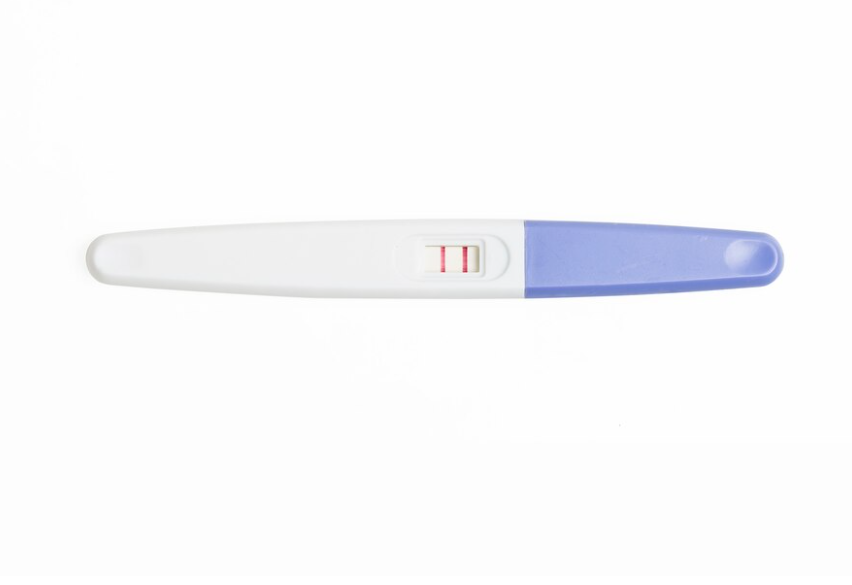Prefer to listen? Check out my podcast here!
Articles have gone viral this week regarding women getting pregnant on diabetes/weight management GLP1-based medications, particularly semaglutide (Ozempic for diabetes, Wegovy for weight management) and tirzepatide (Mounjaro for diabetes, Zepbound for weight management). What do you need to know?
Many women with elevated weight struggle with difficulty getting pregnant. This is most often related to polycystic ovary sydrome (PCOS), which can affect women of all shapes and sizes, is common in women with obesity, and is exacerbated by weight gain. It has also recently been proposed that women with obesity may also be vulnerable to a similar type of issue as seen in men called obesity-associated hypogonadism – much more on this on an upcoming blog post (stay tuned).
Fertility can improve with weight loss in women with obesity. In women with PCOS and elevated weight, weight loss can improve menstrual frequency and ovulation. If obesity-associated hypogonadism exists in women, one could hypothesize that this may also improve with weight loss.
GLP1-based medications are contraindicated (must not be used) in pre-pregnancy, pregnancy, and breastfeeding. These medications are not studied in these situations, so we do not know about potential dangers to the developing fetus, mom, or newborn baby. It’s important that pregnant women do not lose weight (though the amount of weight gain recommended in pregnancy is lower in women with higher baseline weight – more on this here).
We don’t have data to inform on how long before pregnancy these medications should be stopped. The Wegovy product monograph recommends stopping treatment 2 months before a planned pregnancy; it takes about 5 weeks for the medication to come out of the body completely, so the 2 months covers for egg development that could overlap into those 5 weeks. The Mounjaro product monograph recommends stopping 1 month before a planned pregnancy; it takes about the same time for Mounjaro to come out of the body as Wegovy, so this guidance doesn’t take the egg development phase into account.
For women with diabetes, other medication(s) may need to be substituted for the GLP1 based treatment , to ensure that blood sugars remain well controlled in prepregnancy, pregnancy, and breastfeeding.
For women with obesity (with or without diabetes) who are using GLP1 medication for weight management, weight may increase off of GLP1 based treatment. However, it can still be of benefit to use GLP1 medication to get weight to a lower starting point, before starting to try for pregnancy. Not only can a lower weight improve fertility, but a lower weight is healthier for both mom and future baby, going into pregnancy.
Absorption of the birth control pill is reduced during the dose escalation phase of Mounjaro/Zepbound. GLP1 based medications slow stomach emptying , which is most pronounced during the dose escalation phase; Mounjaro/Zepbound’s effect on gastrointestinal slowing is sufficient to reduce absorption of the birth control pill during this phase. Thus, the product monograph advises switching to a non-oral form of contraception, or adding barrier contraception (eg condoms), for 4 weeks after starting and for 4 weeks after each dose escalation. For Wegovy, the product monograph states that no adjustment in contraception approach is needed for women taking the birth control pill.
We do not have enough data with GLP1 medications in pregnancy to know if there is fetal or maternal harm, but these data are being actively monitored through postmarketing reports and registries.
BOTTOM LINE: Women with obesity who are losing weight may have a marked improvement in fertility. If you are taking a GLP1 based medication, ensure you are using adequate contraception. GLP1 medication must be stopped before trying to get pregnant. If you are thinking about trying to get pregnant, talk to your doctor to plan this out well ahead of time, so that the GLP1 based medication can be safely stopped in advance of pregnancy attempts. For a woman who accidentally gets pregnant on a GLP1 medication, it is recommended to stop the medication and contact your doctor right away. If you have diabetes, other medication may be needed to replace the GLP1 to keep good control of blood sugar.
Note that this blog is not intended as personalized medical advice. Always talk to your doctor about your own personal situation.
Disclaimer: I receive honoraria as a continuing medical education speaker and consultant from the maker of semaglutide (Novo Nordisk) and tirzepatide (Eli Lilly). I am/have been an investigator in clinical trials of semaglutide and tirzepatide.
Check me out on X/twitter! @drsuepedersen
Share this blog post using your favorite social media link below!
www.drsue.ca © 2024












